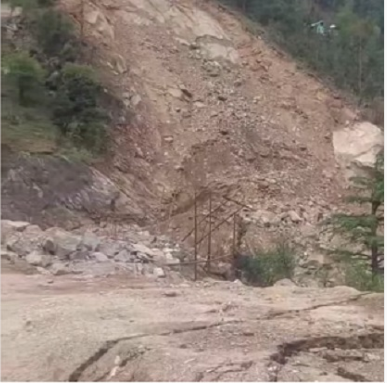SRINAGAR, April 22.2025 – The Jammu and Kashmir Cabinet is poised to finalise the framework for Other Backward Classes reservation in the upcoming local bodies’ elections, encompassing Panchayats and Urban Local Bodies , on April 23, 2025. This critical decision aims to address long-standing delays in grassroots elections and ensure equitable representation, aligning with constitutional mandates and public aspirations for democratic governance.
The Omar Abdullah-led administration has prioritised establishing a robust OBC quota policy, following recommendations from the J&K Backward Classes Commission. The commission, granted an extension in February 2025 to complete its data collection, has submitted a report detailing OBC representation based on the Supreme Court’s “triple test” criteria. These include setting up a dedicated commission to assess OBC backwardness, determining specific reservation proportions for each local body, and ensuring total reservations remain below 50% of seats.
The cabinet’s decision is a pivotal step toward holding local bodies’ polls, which have been stalled since 2023 due to delimitation exercises and the absence of an OBC reservation framework. The process gained momentum after the Indian Parliament passed bills in February 2024, enabling OBC reservations in J&K’s local governance, in line with the central policy of up to 27% reservation for OBCs. The finalized framework is expected to reflect the commission’s findings on the OBC population’s distribution, ensuring proportional representation.
Chief Minister Omar Abdullah, whose National Conference-Congress alliance won 48 seats in the 2024 J&K Assembly elections, emphasised the importance of inclusive governance.
The delay in local polls has been a contentious issue, exacerbated by J&K’s transition to Union Territory status after the abrogation of Article 370 in 2019. The 2024 Assembly elections, the first in a decade, marked a democratic milestone, and the local bodies’ polls are seen as the next step in restoring participatory governance. However, challenges persist, including logistical hurdles posed by recent landslides and road closures, such as the Jammu-Srinagar National Highway.
The cabinet’s forthcoming decision will clarify the OBC reservation percentages and set the stage for announcing election dates. It will also address concerns raised by stakeholders about ensuring fair representation without exceeding constitutional limits. The administration is under pressure to balance legal requirements with the diverse demographic needs of J&K’s 20 districts.
As anticipation builds, the OBC quota framework is expected to usher in a new era of inclusive local governance, empowering communities and strengthening J&K’s democratic fabric. The successful implementation of these polls will hinge on effective coordination between the district administration, election authorities, and local stakeholders.



